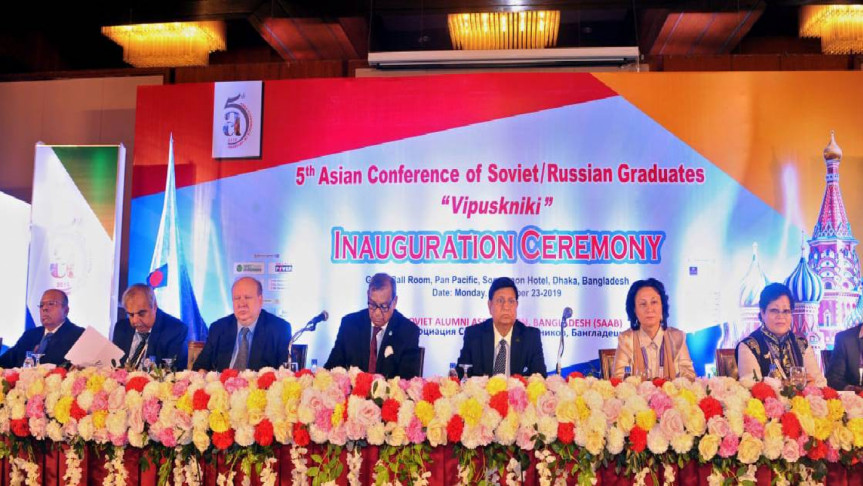Rohingya Repatriation: Russia urged to put pressure on Myanmar

Bangladesh has urged Russia to use its influence on Myanmar and put pressure so that Naypyidaw takes back its people currently living in Cox’s Bazar camps.
"We know the Russian Federation has lot of influence on Myanmar," said Foreign Minister Dr AK Abdul Momen on Monday, seeking Moscow’s support for Rohingya repatriation, the UNB reported.
The Foreign Minister was addressing the 5th Asian Conference of Soviet/Russian Graduates at a city hotel. Russian Ambassador to Bangladesh Alexander I Ignatov, among others, spoke at the programme.
Though Myanmar agreed to take back its people, not a single Rohingya has so far been repatriated. The Rohingyas, subjected to decades of state-sponsored discrimination, lack faith in Myanmar leadership and are sceptic about a conducive environment for repatriation.
Dr Momen urged Russia and its friends to scale up efforts so that Rohingyas can return to their homes in Rakhine State.
Bangladesh is now hosting over 1.1 million Rohingyas who were forced to leave their homes in Rakhine State amid military crackdown and tortures.
Dr Momen said Bangladesh had a long history of friendship with the former Union of the Soviet Socialist Republics. "All of us are aware of the support and contribution Soviet Union extended during our War of Liberation and thereafter."
The then Soviet government raised its voice in the international arena against the atrocities committed on the people of Bangladesh and took active part in the re-construction and rehabilitation efforts immediately after the country was born.
The USSR also provided its support to Bangladesh in acquiring international recognition and to facilitate its admission to the United Nations.
For their unconditional support, the Soviet Union, its leadership, its government and its people earned a special place in the hearts of Bangladeshi people, said the Foreign Minister.
Recognising the partnership and friendship with the USSR, Father of the Nation Bangabandhu Sheikh Mujibur Rahman paid a historic visit to Moscow on March 1, 1972 which laid foundations of Bangladesh-Russia bilateral relations.
Dr Momen said the potential of this bilateral cooperation and mutual understanding was lost in the political tumult that ensued in Bangladesh after the killing of Bangabandhu in 1975. USSR also broke down in 1991 and led to emergence of 15 individual states. Bangladesh immediately recognised the Russian Federation as the successor state."
The Foreign Minister said he is certain that Prime Minister Sheikh Hasina’s government will receive full support from the members of the Soviet Alumni Association in its endeavour to maintain the increasing cooperation between Bangladesh and Russia.
He congratulated the Soviet Alumni Association for their already done endless work in cementing the relations between the two countries on a strong footage.
"Let us continue to pursue the rights to a secure, better and dignified life for the people of the two countries as well as the entire humanity," he said.

 NTV Online
NTV Online




